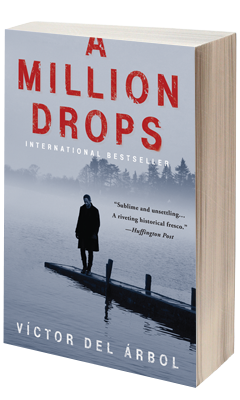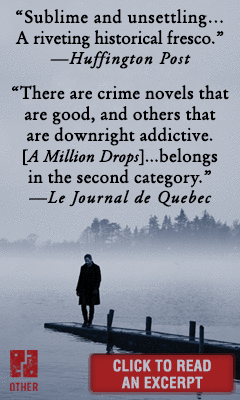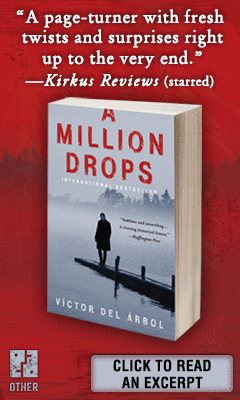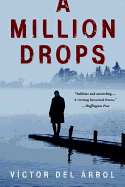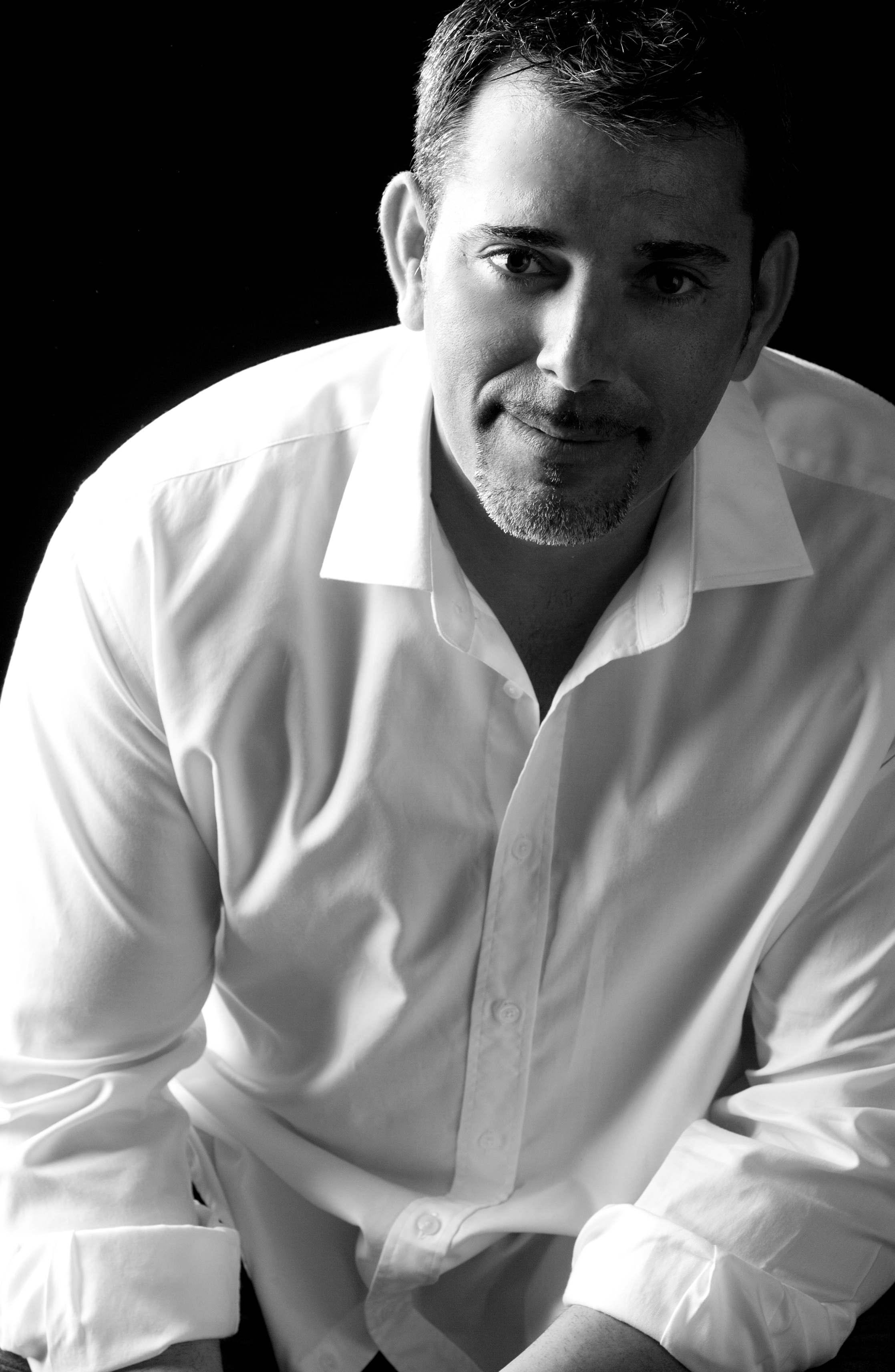A Million Drops
by Víctor del Árbol, trans. by Lisa Dillman
Barcelona attorney Gonzalo Gil's life is far from perfect. His relationship with his teen son, Javier, is strained; his marriage is a series of rote actions with little to no emotion; and his legal career limps along in the shadow of his influential father-in-law. But Gonzalo has made peace with his place in life and, despite being fully aware of its deficiencies, he chooses to continue in the status quo. That is, until he's notified of the death of his estranged older sister, Laura.
It's been more than 10 years since Gonzalo has heard anything about her. He learns that Laura, a deputy inspector, is believed to have murdered a man before taking her own life; the man Laura's accused of murdering, a Russian mobster, was suspected of killing her young son. On the surface it all seems plausible--revenge and remorse--but as Gonzalo revisits memories of his youth, he struggles to believe the sister he loved and knew so well could be capable of these actions. His doubts are confirmed when one of Laura's confidential informants shows up with evidence that her death isn't what it appears to be.
Víctor del Árbol's A Million Drops pulls readers into Gonzalo's clumsy investigation of his sister's death and then opens up a history into Gonzalo's family--specifically his father, Elías Gil--developing a parallel mystery. As del Árbol alternates between the two--one taking place in Spain 2002, the other in 1930s U.S.S.R.--the suspense and emotion build.
Elías was a Spanish engineering student in 1933. He was also, like his own father, a proud Communist. Elías traveled to Moscow to finish his degree by helping in Stalin's Five-Year Plan, building bridges and canals. "Elías was curious about everything: the architecture of the buildings they passed; Moscow's history, literature, and music; and of course, politics. He wanted to know it all: who was who, how things had gone since the civil war. And he was drawn like a magnet to the omnipresent figure of Stalin." Despite Elías's passion for Communism, Stalin and the Union of Soviet Socialist Republics, he is unexpectedly arrested, accused of being a traitor and spy and shipped off to a Siberian work camp. Here Elías learns his horrors have only just begun.
Del Árbol's dense novel continually compounds momentum, moving the plot faster and faster the further into the 600-plus pages the reader advances. As the two storylines come closer and closer to merging, the intensity skyrockets. As the events themselves escalate, del Árbol supplements them with vivid descriptions, poetic language and richly developed characters--both good and evil.
From the onset, Moscow is painted in a foreboding tone, "The job site [Elías had] been assigned to was, at the time, the greatest feat of engineering ever undertaken by man.... But he was also confronted by the harsh reality of the inhuman means by which it was carried out. The canal's construction was overwhelmingly supplied by forced labor, prisoners sometimes convicted on ridiculous charges."
Then, as the action of the novel ratchets up, so does the harshness and the darkness of the U.S.S.R., "In the summer, after the thaw, the steppe is a hot, steamy hell where the sweat sticks oppressively to your body and attracts flies and mosquitoes by the thousands.... They hound you day and night, attacking your body, crawl into every orifice they can find. It's like you're a rotting carcass, except they don't have the patience to wait for you to die; instead they eat you alive."
As dark and tortuous as the plot and setting are in A Million Drops, there's also an incredible beauty in the language del Árbol employs. He develops complex relationships between the characters, making them all the more fascinating and relatable. Gonzalo struggles with the fraying bond between himself and his son, Javier. A communication breakdown between the two keeps them at arm's length, but readers are privy to the passion Gonzalo holds in his heart, "Gonzalo should have told him the truth. Should have said I love you, and that the years of silence between them didn't matter, that he'd always be there for him no matter what he did, come what may. He should have told him that he was his son, and nothing in the world mattered more."
The English translation by Lisa Dillman must be noted for preserving the power of del Árbol's words, whether they are prophetic or ardent, blatant or subtle, determined or hopeless. The intense struggles, both physical and emotional, drive this suspenseful novel fueled by the incredible delivery of language. A Million Drops is dark, disturbing and a delicious treat for any fan of smart noir fiction. --Jen Forbus



